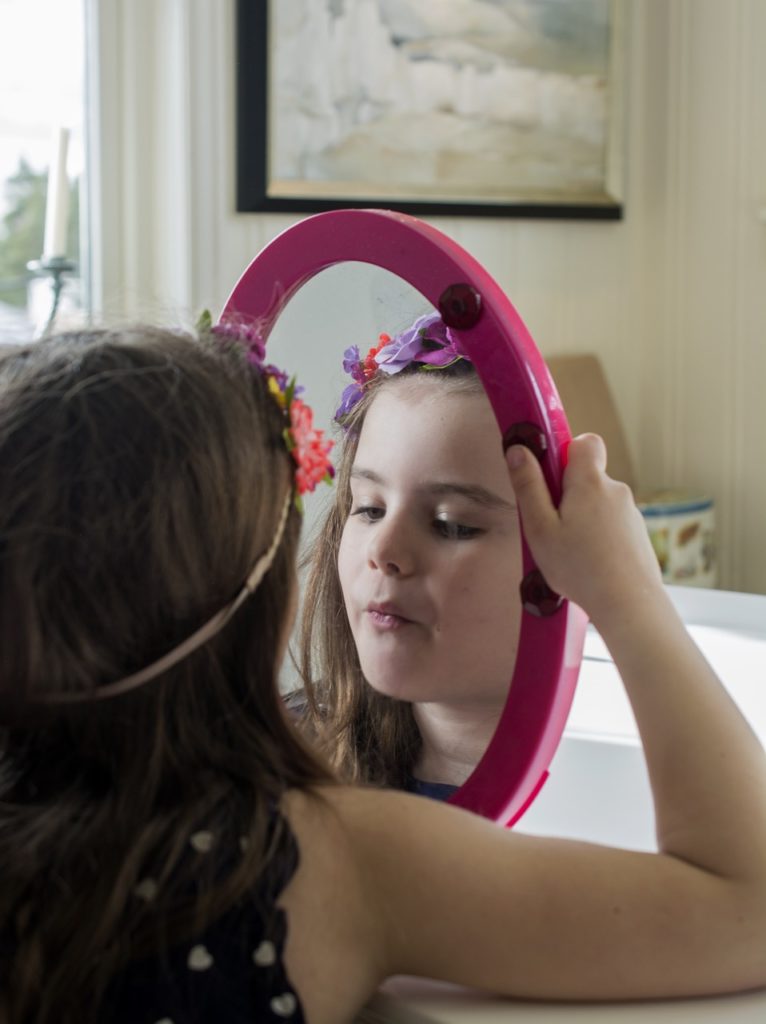“I hate the way my thighs look in leggings.” “I can’t leave the house without makeup to cover my awful skin.” “I never wear sandals. My toes are too ugly and misshapen.” “I wish I wasn’t so hairy. It’s disgusting.”
There are very few women I know who don’t make observations like the ones above from time to time.
We have all grown up feeling intense scrutiny and pressure from peers, family members, and popular culture to look a certain way. I was raised in a healthy, stable family and consider my parents to have done a wonderful job building my self-esteem and self-worth. But I didn’t escape the feelings of shame and isolation that came when, as a teenager, I didn’t look like the popular crowd or fit into Hollister sizing. My skin was too broken out, my eyebrows too bushy and my stomach too round. My weight has been a recurring struggle for me and I have yo-yoed up and down, losing and regaining the same weight several times since high school. My mental health and self-esteem have often been tied to where I land on the scale.
But I want more for my daughter, who is about to turn five.
My intelligent, beautiful, perfectionist daughter whose razor-sharp attention is tuned into everything coming out of my mouth. As my daughter has grown, I have thought a lot about how to help her develop body positivity and to understand that beauty doesn’t have to fit one certain ideal. We talk often about how our differences are what make us all unique and interesting.
I am reframing the things I used to say about my own body.
At first it was so that I could hide from her how I felt about my sagging mom belly and multiplying gray hairs, but more and more I’m choosing different ways of describing myself because I’m learning how to love my own body in the way I want her to love hers. I wore shorts this summer, something I refused to do in high school due to my thighs, because I didn’t want her to ask why I was sweating it out in pants and have no other excuse than my own insecurities. But the more I wore them, the less I cared about how they looked or what others might think. I began leaving the house without makeup on days we were pressed for time because I didn’t want her to get the impression that fixing my face was more important to me than getting her to school on time. But ditching the makeup felt so freeing.
I am starting to understand that I don’t owe others anything in regards to my appearance.
The more I have become aware of my own body image issues, the more I have noticed others’ negative self-talk. I realized there is a bizarre code among women that when a friend says something demeaning about her own body, it is considered proper etiquette to assure the friend her comment isn’t true and then to try to make her feel better by bringing up some of my own insecurities. I have found myself doing this in front of my daughter in response to other women’s comments on several occasions. I am trying to quit feeling the need to commiserate and to instead simply say something kind back to the other woman.
Modeling an attitude of love and body positivity for my daughter is helping me focus less on myself and hopefully more on uplifting and including others.
Now that January is in full swing, I am coming off the holiday high with a few too many extra pounds (of fudge), and I find myself knee deep in resolutions and good intentions. Empty treadmills at the gym are scarce, Weight Watchers commercials are blaring from the TV, and every other friend on Facebook is challenging me to join their 30-day healthy eating group. I am getting motivated to lose the weight I’ve put back on since summer, but for the first time in my life, I am approaching a weight loss goal with a very different frame of mind. I am being very careful not to ever use the word diet around my daughter and to instead have conversations with her about the ways I’m making an effort to be more healthy.





















